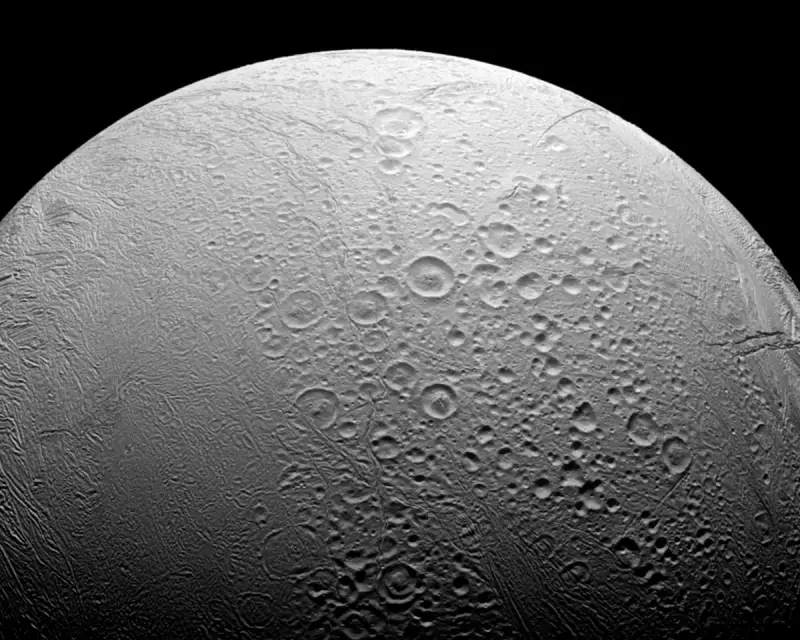
In a discovery that could rewrite our understanding of life in the cosmos, scientists have confirmed the presence of vital carbon-based molecules in the watery plumes erupting from Saturn's icy moon Enceladus. This groundbreaking finding significantly enhances the moon's credentials as one of the most promising places to find extraterrestrial life within our solar system.
The Hidden Ocean's Chemical Signature
New analysis of data from NASA's Cassini spacecraft has revealed compelling evidence of hydrogen cyanide and other organic compounds within the spectacular geysers that shoot into space from Enceladus's subsurface ocean. These aren't just any molecules—they're fundamental building blocks that could potentially fuel living organisms.
"What we're seeing is essentially a chemical toolkit for life," explained Dr. Jonah Peter from Harvard University, lead author of the study published in Nature Astronomy. "Enceladus isn't just giving us water—it's providing the essential ingredients that could support microbial communities in its dark, hidden ocean."
More Complex Than Expected
The research reveals that Enceladus's ocean chemistry is far more sophisticated than previously imagined. Beyond the simple organic molecules detected earlier, scientists have now identified compounds that could serve as both energy sources and building materials for life.
The key findings include:
- Hydrogen cyanide, a crucial molecule for forming amino acids
- Evidence of oxidative stress, suggesting active chemical processes
- Compounds that could power metabolism without sunlight
- A chemical environment rich in potential energy sources
A New Frontier for Astrobiology
Enceladus has rapidly ascended the ranks of potential life-hosting worlds since Cassini first discovered its magnificent plumes in 2005. The moon's subsurface ocean—kept liquid by Saturn's gravitational pull—contains all three ingredients considered essential for life: water, energy, and now, the right chemistry.
"This discovery places Enceladus firmly alongside Europa as a prime candidate in the search for life beyond Earth," said Dr. Christopher Glein from the Southwest Research Institute. "We're not just looking at a frozen wasteland—we're looking at a world with a dynamic, chemically rich ocean that could be habitable right now."
The findings come from sophisticated reanalysis of Cassini data, proving that even years after the mission ended, the spacecraft continues to deliver revolutionary insights about our solar system's most intriguing worlds.





